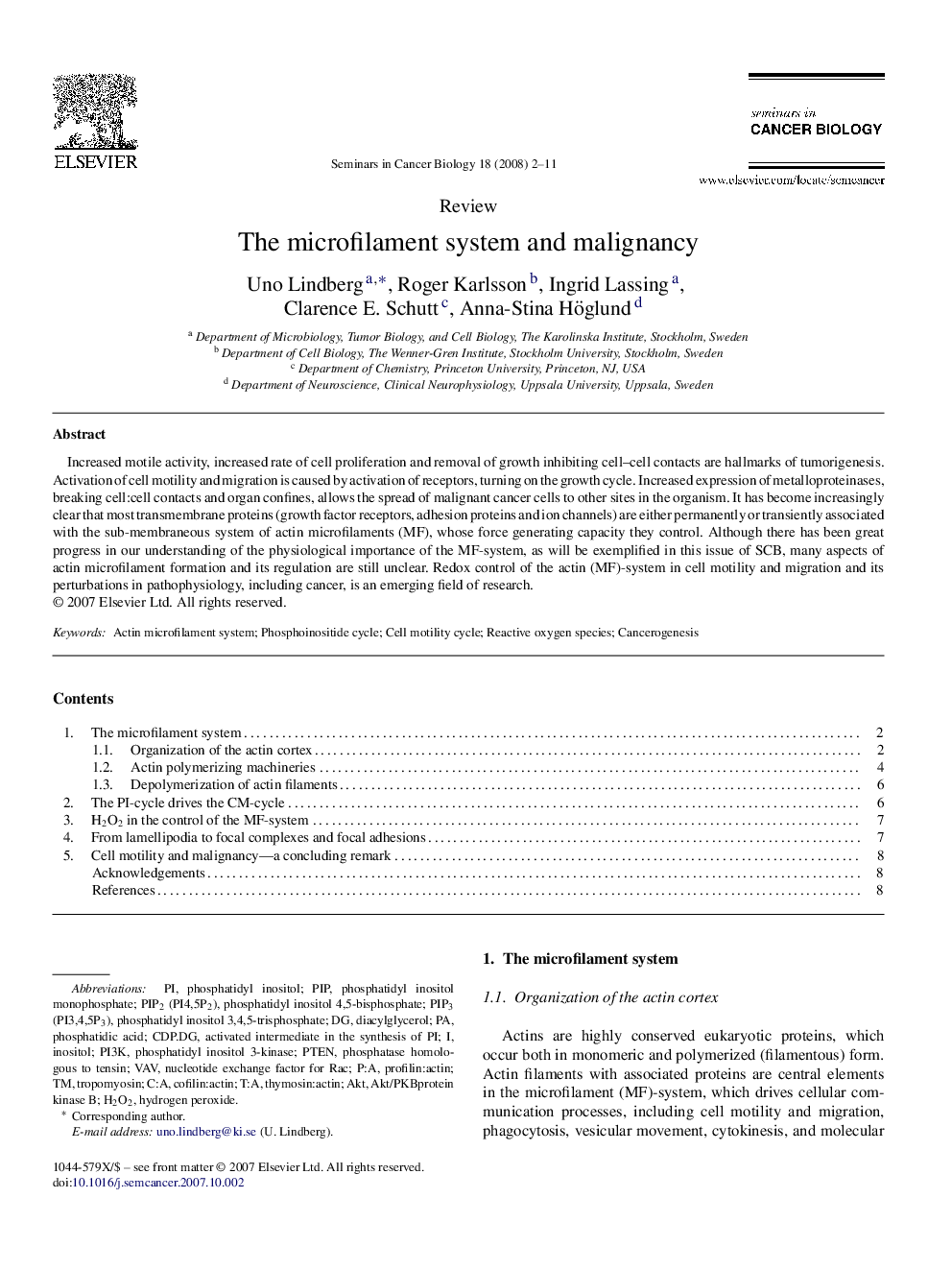| Article ID | Journal | Published Year | Pages | File Type |
|---|---|---|---|---|
| 2023781 | Seminars in Cancer Biology | 2008 | 10 Pages |
Increased motile activity, increased rate of cell proliferation and removal of growth inhibiting cell–cell contacts are hallmarks of tumorigenesis. Activation of cell motility and migration is caused by activation of receptors, turning on the growth cycle. Increased expression of metalloproteinases, breaking cell:cell contacts and organ confines, allows the spread of malignant cancer cells to other sites in the organism. It has become increasingly clear that most transmembrane proteins (growth factor receptors, adhesion proteins and ion channels) are either permanently or transiently associated with the sub-membraneous system of actin microfilaments (MF), whose force generating capacity they control. Although there has been great progress in our understanding of the physiological importance of the MF-system, as will be exemplified in this issue of SCB, many aspects of actin microfilament formation and its regulation are still unclear. Redox control of the actin (MF)-system in cell motility and migration and its perturbations in pathophysiology, including cancer, is an emerging field of research.
